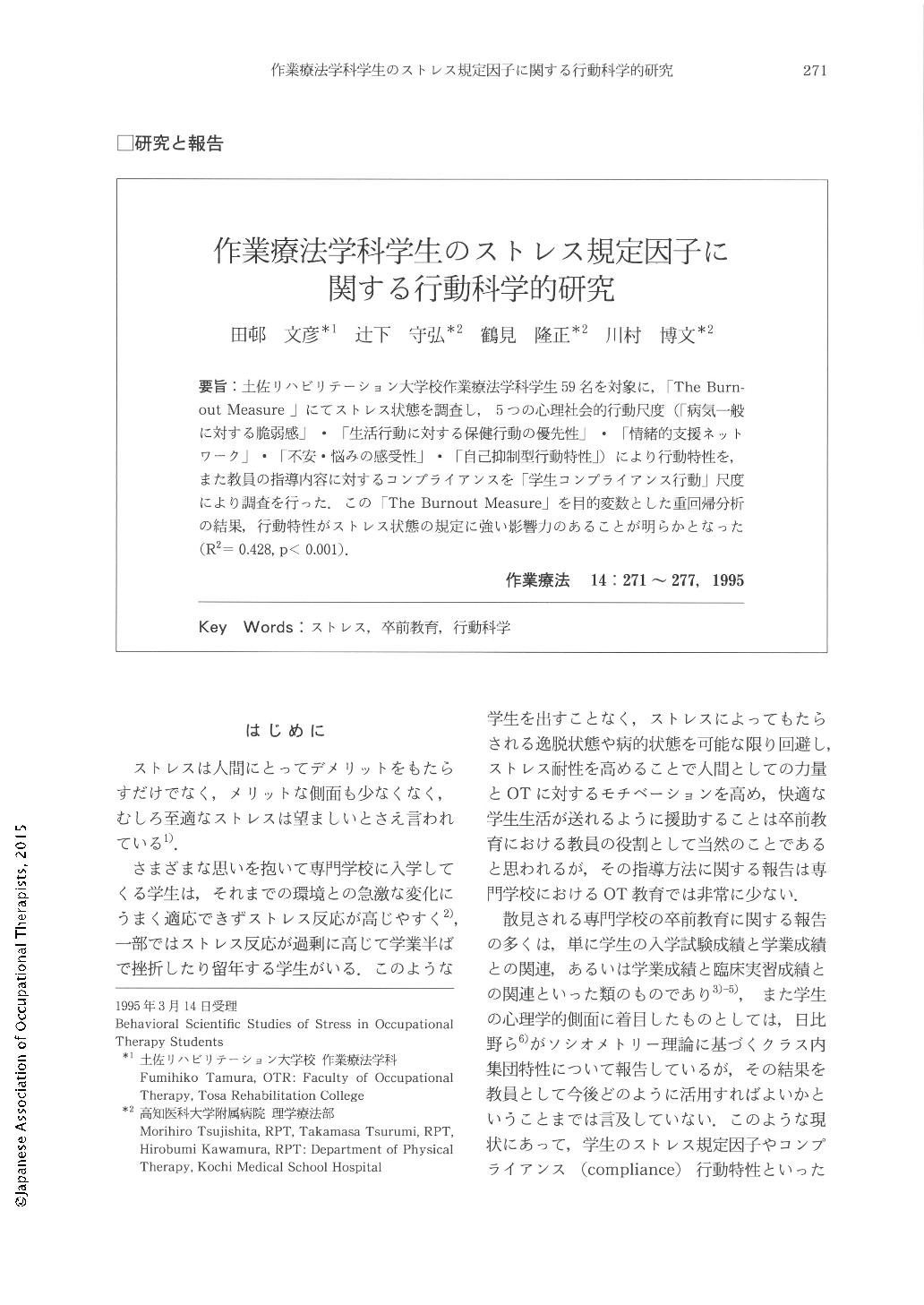Japanese
English
- 販売していません
- Abstract 文献概要
- 1ページ目 Look Inside
- 参考文献 Reference
- サイト内被引用 Cited by
要旨:土佐リハビリテーション大学校作業療法学科学生59名を対象に,「The Burnout Measure」にてストレス状態を調査し,5つの心理社会的行動尺度(「病気一般に対する脆弱感」・「生活行動に対する保健行動の優先性」・「情緒的支援ネットワーク」・「不安・悩みの感受性」・「自己抑制型行動特性」)により行動特性を,また教員の指導内容に対するコンプライアンスを「学生コンプライアンス行動」尺度により調査を行った.この「The Burnout Measure」を目的変数とした重回帰分析の結果,行動特性がストレス状態の規定に強い影響力のあることが明らかとなった(R2=0.428,p<0.001).
The purpose of this study was to examine the relationship between the stress state of occupational therapy students and their psycho-social profiles or behavioral characteristics. The subjects were 59 occupational therapy students in the Tosa Rehabilitation College. Five psycho-social behavior scales used in this study were, i. e. "fragile sensation of disease in general", "preference of health behavior to living one", "emotional support network", "anxiety sensitivity" and "inhibitory behavioral characters", and a compliance behavior scale "compliance behavior of student", we examined these subjects for behavioral characteristics and we also used "the burnout measure" scale for the stress state of occupational therapy students. The multiple regression analysis was performed with five psycho-social behavior scales and a compliance behavior scale as objective and explanatory variables, respectively. As a result, behavioral characters of occupational therapy students proved to have a strong influence on the stress state (R2 = 0.428, p<0.001). Calculation of the standard partial regression coefficient revealed that "anxiety sensitivity" (β = 0 .300, p< 0.05) and "fragile sensation of disease in general" (β=0.281, p<0.05) had positive influences on the stress state of occupational therapy students as an objective variable, and that "compliance behavior of student" (β= −0.241, p<0.05) had a negative influence on the stress state of occupational therapy students. The results suggested that effective undergraduate education requires a good understanding not only of the behavioral characteristics, but also compliance behavior.

Copyright © 1995, Japanese Association of Occupational Therapists. All rights reserved.


